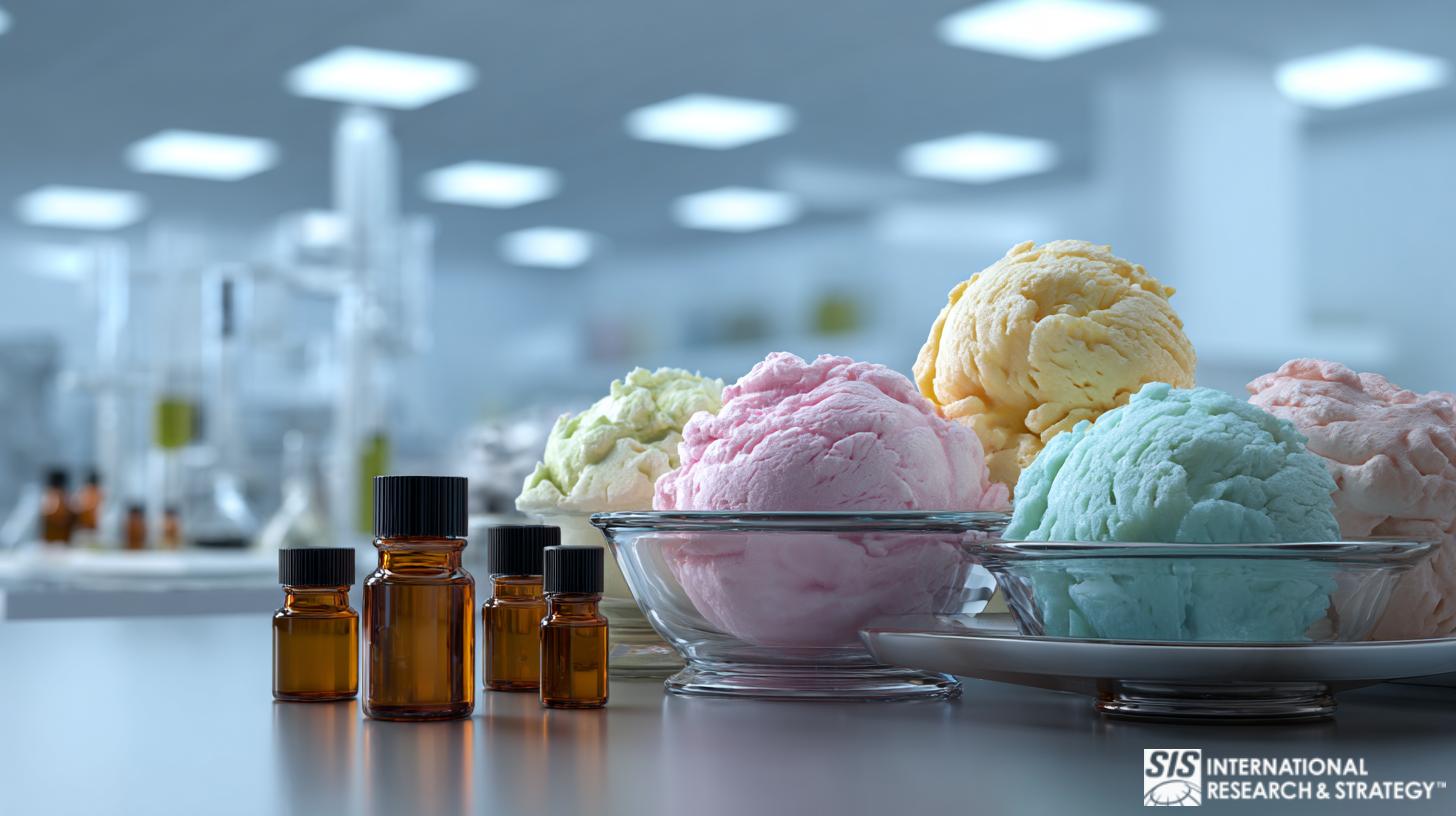Marktforschung für Geschmackstests von Lebensmittel- und Getränkerezepten

Die Marktforschung im Bereich Geschmackstests von Rezepturen für Lebensmittel und Getränke ist ein umfassender Ansatz zur Entschlüsselung von Verbraucherpräferenzen, Ernährungstrends und der allgemeinen Akzeptanz einer Rezeptur auf einem bestimmten Markt.
Food and beverage recipe taste testing market research aims to understand consumer palates, ensuring every bite aligns with the ever-evolving consumer preferences. Therefore, it’s not just about gauging a dish’s flavor profile but also about understanding the nuances of consumer preferences, emerging dietary trends, and the overarching market reception of a particular recipe.
Bedeutung der Marktforschung für Geschmackstests von Lebensmittel- und Getränkerezepten
In an era when culinary preferences are rapidly evolving and consumers are becoming increasingly discerning, market research is a vital solution for businesses. This research assesses the immediate likability of a recipe and dives deep into understanding the intricate factors that influence a diner’s preference.
Darüber hinaus bietet die Marktforschung einen datengesteuerten Ansatz zur Rezeptentwicklung, der das Rätselraten überflüssig macht und das Produktangebot an die Marktnachfrage anpasst. Durch die Analyse von Echtzeit-Feedback können Unternehmen Zutaten optimieren, Portionen anpassen oder Kochtechniken überarbeiten, um sicherzustellen, dass das Endprodukt bei der Zielgruppe ankommt.
Anwendungen und Fallstudien aus der Praxis

- Kreation globaler Aromen für lokale Gaumen: Global food and beverage companies like PepsiCo and Coca-Cola often reformulate their products for local markets based on market research. For instance, Coca-Cola’s formulation varies across countries to cater to local flavor preferences.
- Craft Beer Brauereien: Mit dem Craft-Beer-Boom nutzen viele neue Brauereien Marktforschung, um ihre Biere zu verfeinern. Indem sie Feedback zu Bitterkeit, Süße und anderen Geschmacksprofilen erhalten, können sie ihre Biere auf bestimmte Marktsegmente zuschneiden.
- Lebensmittel für besondere Ernährungsbedürfnisse: Companies specializing in gluten-free, keto, or vegan foods often rely on market research. This ensures that their products meet dietary needs without compromising on flavor.
Chancen durch Marktforschung zu Geschmackstests für Lebensmittel- und Getränkerezepte
Market research on food and beverage recipe taste testing is not merely about discerning what appeals to the palate; it’s an insightful journey into understanding customer preferences, emerging trends, and the culinary landscape’s evolving dynamics. So, what are the opportunities that market research offers businesses?
- Maßgeschneiderte Produktentwicklung: Companies can tailor their product development efforts. It means reducing the risk of product failures and ensuring offerings align with consumer expectations.
- Marktlücken identifizieren: Through Food and beverage recipe taste testing market research, businesses can identify gaps in the market. Perhaps there’s a flavor combination yet to be explored or a dietary trend that hasn’t been catered to.
- Markenverbesserung: Brands can enhance their image by constantly aligning with consumer tastes and preferences. This shows a commitment to understanding and catering to their target audience.
Herausforderungen und Überlegungen bei der Marktforschung für Geschmackstests von Lebensmittel- und Getränkerezepten
For businesses seeking to delve into the world of Food and beverage recipe taste testing market research, the process may not be as straightforward as it seems. Though profoundly insightful, this approach brings some challenges and considerations that organizations must be aware of.
- Stichprobenverzerrung: Die für die Marktforschung zur Geschmacksprüfung von Rezepturen für Lebensmittel und Getränke ausgewählte Stichprobe kann die Ergebnisse stark beeinflussen. Es ist wichtig, eine vielfältige Gruppe sicherzustellen, die die Zielgruppe genau repräsentiert.
- Umweltfaktoren: The environment where the taste test is conducted can impact participants’ perceptions. A neutral setting is essential to prevent any external influences on the test.
- Kostenauswirkungen: Conducting comprehensive market research can be expensive, particularly when considering logistics, participant compensation, and analysis.
- Subjektivität des Geschmacks: Jeder Gaumen ist anders. Marktforschung zu Geschmackstests von Lebensmittel- und Getränkerezepten kann zwar allgemeine Erkenntnisse liefern, es wird jedoch immer individuelle Unterschiede bei den Geschmacksvorlieben geben.
- Zeitaufwändige Analyse: Die Analyse der bei Geschmackstests gesammelten Daten kann, insbesondere bei komplexen Rezepturen, zeitaufwändig sein und erfordert Fachwissen.
Technologische Fortschritte
In the rapidly evolving realm of food production and consumption, Food and beverage recipe taste testing market research has undergone a significant transformation, driven largely by technological advancements. These innovations streamline the testing process and provide deeper insights into consumer preferences, ensuring products align more with market demand.
- Werkzeuge zur sensorischen Analyse: Traditionally, sensory evaluations were reliant on human panels. Today, advanced sensory analysis tools can mimic human senses, capturing objective data on taste, aroma, texture, and appearance. These tools, integrated into market research, offer a more consistent evaluation metric, reducing human panel variability.
- Virtual Reality: This immersive technology is changing the game in taste testing. They can simulate different dining environments, allowing researchers to understand how ambiance affects taste perception. For example, a pasta dish might be received differently when consumed in a simulated Italian countryside setting versus an urban fast-food environment.
- 3D-Lebensmitteldruck: Emerging 3D printing technologies allow creating foods with customized flavors, textures, and nutritional profiles. In terms of taste testing, this means products can be modified and re-tested in real time during research phases, accelerating the product development cycle.
Zukünftige wahrscheinliche Trends der Marktforschung für Geschmackstests von Lebensmitteln und Getränken
- Erweiterte sensorische Analysetools: Technology is pivotal in refining the taste testing process. Tools that map out the palate response, gauge texture perceptions, and even evaluate the aroma are becoming standard in many test kitchens and labs.
- Einbindung von KI: KI bietet tiefe Einblicke in die Vorlieben der Verbraucher. Durch die Analyse von Daten aus verschiedenen Quellen (wie sozialen Medien, Restaurantbewertungen und Lebensmitteleinkäufen) können Unternehmen Geschmackstrends vorhersagen und Rezepte erstellen, die sofort zum Renner werden könnten.
- Personalisierung: Personalized nutrition and diet plans based on an individual’s genetic makeup, lifestyle, and health needs are on the horizon. This means that more specialized and niche taste tests might be needed to tailor them to specific demographics or health groups.
What Makes SIS International a Top Food and Beverage Recipe Taste Testing Market Research Company?
SIS International has earned its reputation as a leader in food and beverage recipe taste testing. Combining decades of expertise, innovative methodologies, and client-focused solutions, we help brands perfect their recipes to align with consumer preferences and market demands.
Deep Expertise in Recipe Taste Testing
With over 40 years of experience in market research, SISl excels at testing recipes for food and beverages. We understand the delicate balance of flavors, textures, and aromas that drive consumer satisfaction and help you create stand-out products.
State-of-the-Art Testing Environments
Our advanced testing facilities in New York have cutting-edge tools and controlled environments. These resources allow for precise evaluation of every recipe component, ensuring consistency, quality, and alignment with target audience preferences.
Diverse and Representative Consumer Panels
New York’s unique demographic diversity enables us to recruit participants from various backgrounds. This ensures our recipe testing results reflect the preferences of your target consumers, whether they’re local, regional, or global.
Extensive Industry Knowledge
Our experience spans various food and beverage categories, including snacks, meals, soft drinks, and specialty beverages. This breadth of knowledge allows us to offer valuable recommendations based on industry trends and best practices.
Cost-Effective Research Services
SIS is committed to providing high-quality research at competitive prices. Our recipe testing services deliver exceptional value, enabling businesses of all sizes to refine their offerings without overextending their budgets.
Actionable Insights That Empower Decisions
We go beyond data collection to deliver strategic insights. Our recommendations help you make recipe adjustments, improve ingredient selection, and optimize production processes to create products consumers love.
Fast and Reliable Results
In a dynamic market, speed matters. SIS ensures quick turnaround times for recipe taste testing, allowing you to make timely decisions and stay ahead of your competition.
Commitment to Objectivity and Quality
Our rigorous protocols guarantee unbiased results. By focusing solely on consumer feedback, we provide research you can trust to guide your recipe development and refinement.
A Trusted Partner for Long-Term Success
At SIS, we view ourselves as more than just a research provider—we are your strategic partner. From planning to execution and reporting, we work closely with you to ensure your recipes align with consumer expectations and achieve market success.
Unser Standort in New York
11 E 22nd Street, Floor 2, New York, NY 10010 T: +1(212) 505-6805
Über SIS International
SIS International bietet quantitative, qualitative und strategische Forschung an. Wir liefern Daten, Tools, Strategien, Berichte und Erkenntnisse zur Entscheidungsfindung. Wir führen auch Interviews, Umfragen, Fokusgruppen und andere Methoden und Ansätze der Marktforschung durch. Kontakt für Ihr nächstes Marktforschungsprojekt.

